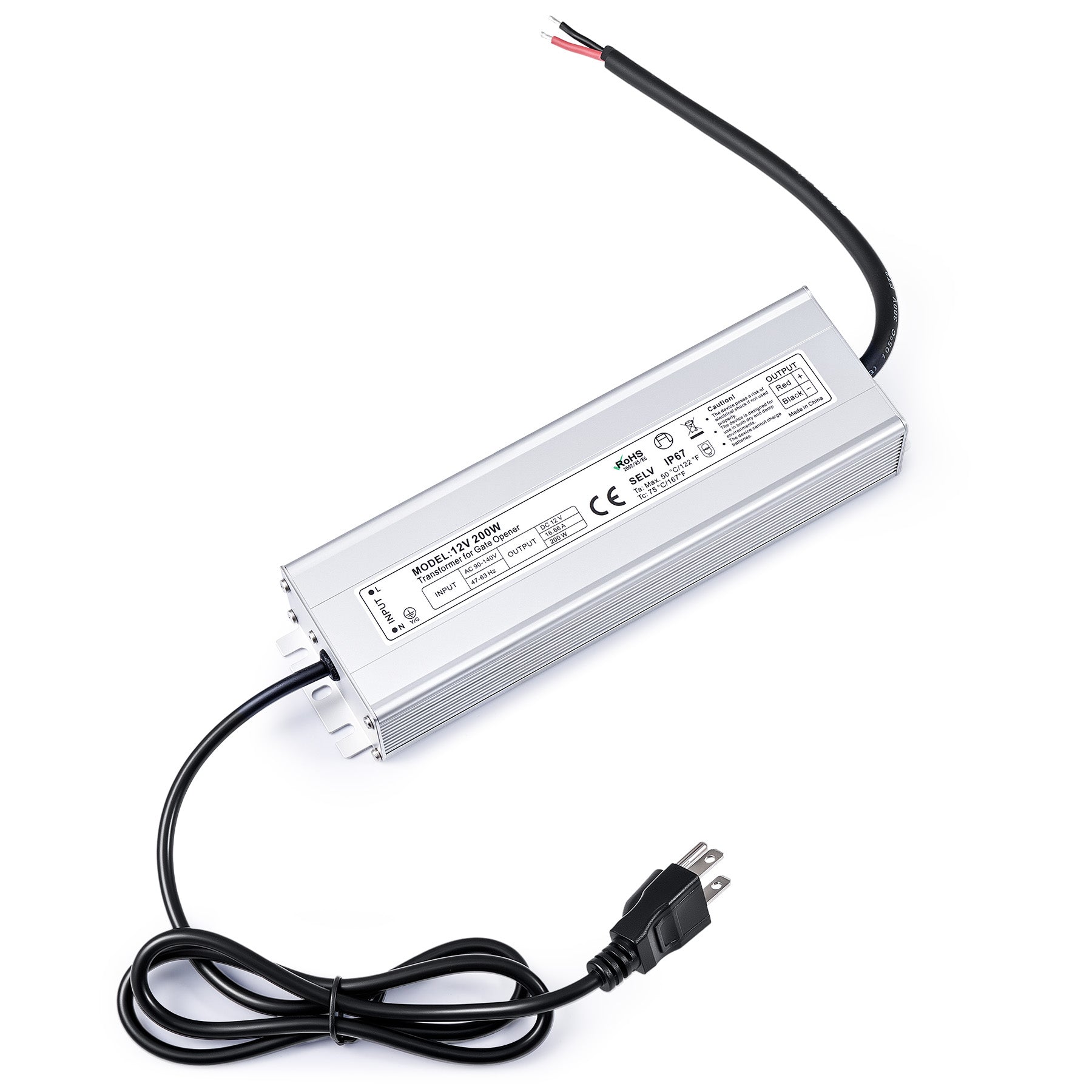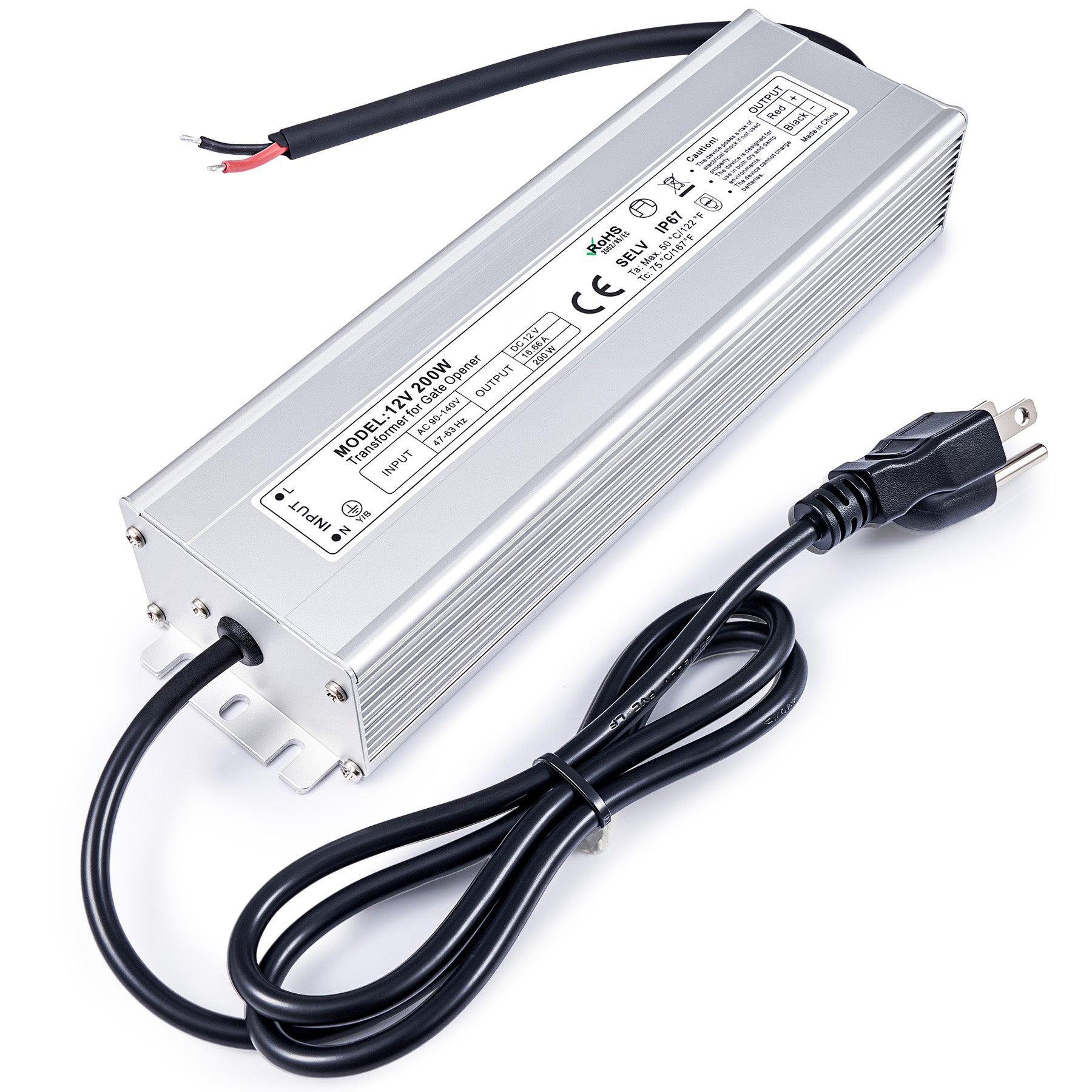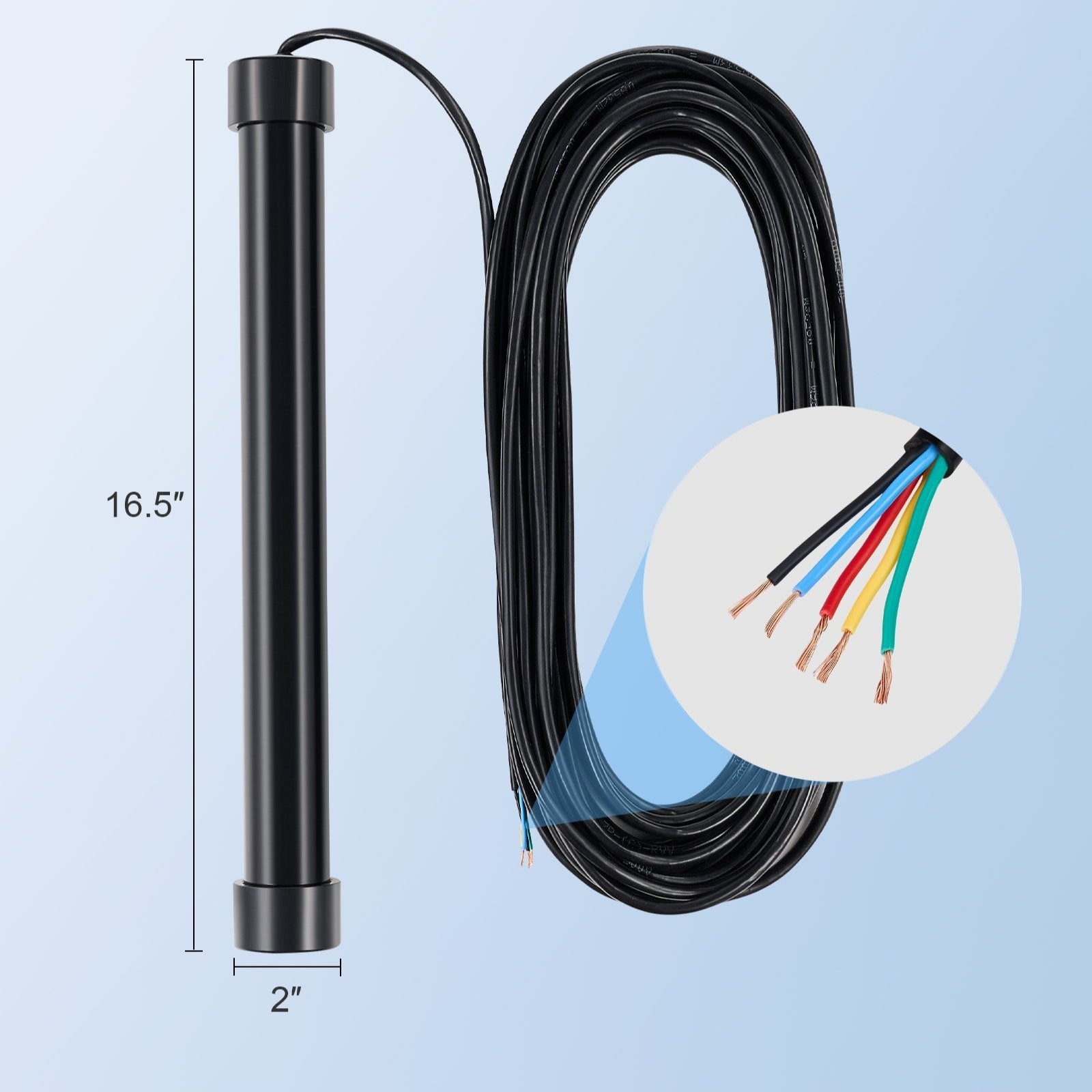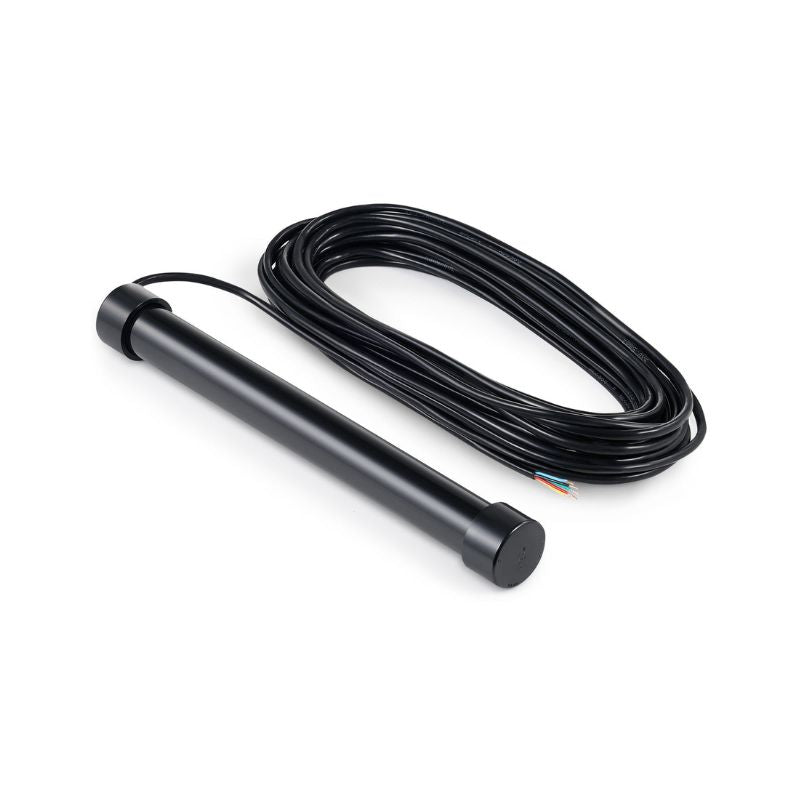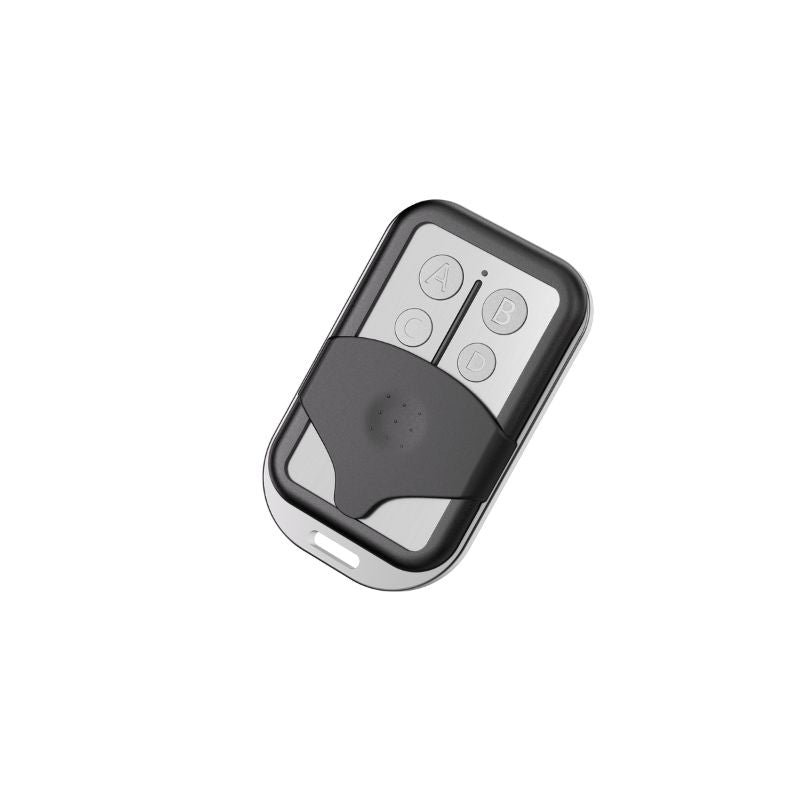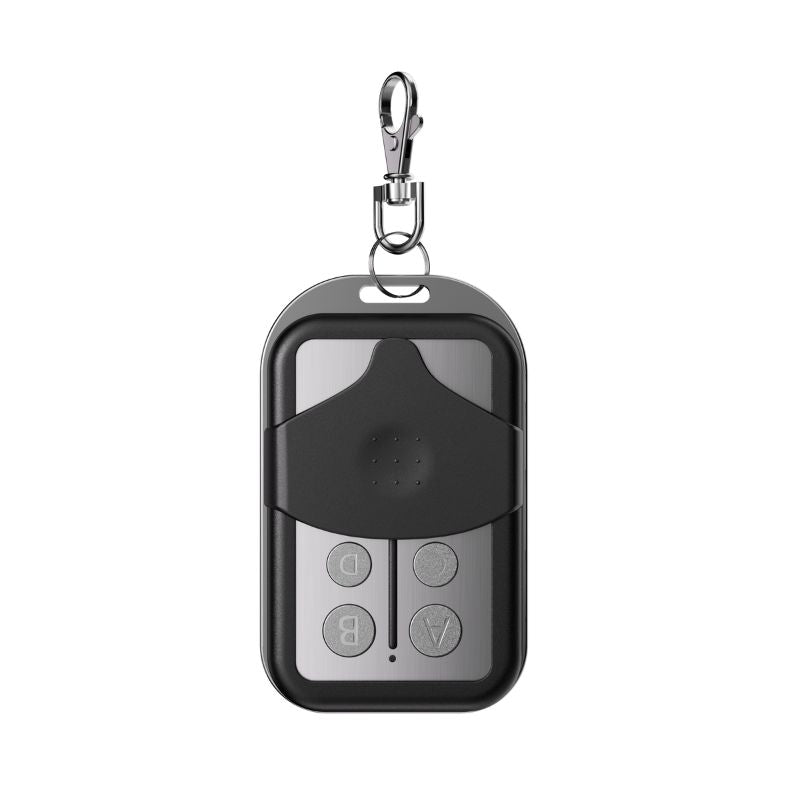There are many more types of automatic gate openers than most people realize. The common knowledge is that gate openers are grouped into 4 main categories (swing, sliding, barrier arm, and overhead), but when you factor in mechanism, power source, and installation, there are about 10 distinct types of gate openers.
Understanding the differences between these types of automatic gate openers is important because it helps you realize you have a wide variety of options when it comes to finding an automatic gate opener that fits your space, needs, and budget.
This blog will help you make an informed choice.

Gate Opener Types: Main Categories
1. Swing Gate Openers
Swing gate openers are gate openers designed for swing gates (gates that open like a traditional door). They are best suited for residential properties with wide driveways and flat terrain.
Types of Swing Gate Openers
Just like the different types of swing gates, swing gate openers can either be single swing or double swing.
- Single swing gate openers match single leaf swing gates (one large gate panel)
- Double swing gate openers match double leaf swing gates (two panels that meet in the middle).
Pros and Cons of Swing Gate Openers
Pros of Swing Gate Openers
- Swing gate openers are perfect for maintaining the elegant and traditional look of a swing gate.
- Their mechanics are simpler and less demanding to maintain (compared to sliding gates)
- Swing gates are more flexible to install and customize, as they (typically) can be installed above ground or underground.
Cons of Swing Gates
- Swing gates are generally very space hungry, less resistant to wind (they are higher and wider), and are only suitable for level driveways. Consider the following:
- They require large clearance to swing open, which can be a problem if your driveway is shorter or your compound is close to the street.
- Depending on the driveway gate design, the large panels of a swing driveway gate can act like sails, which will put undue stress on motors during storms.
- On sloped driveways, a swing gate may scrape the ground as it swings or require costly custom installation.

Should You Consider a Swing Driveway Gate Opener?
Swing gates are affordable compared to sliding gates, but the land must cooperate. If you have a flat driveway and want style without industrial vibes, this option balances cost and elegance.
Another huge plus is that they are great for aesthetics: if you already have a classy dual swing driveway gate (maybe Opera Style or Brooklyn Style), it enhances its classy appearance without taking away the shine from the gate design.
2. Sliding Gate Openers
Sliding gate openers are automatic gate openers that are specifically designed for sliding gates (gates that move sideways along a track or a cantilever system instead of swinging inward or outward)
Sliding openers are the go-to for properties with steep driveways, limited space for swinging, or security concerns. They’re also excellent for commercial and industrial gates that are large and heavy.

Pros of Sliding Gate Openers
-
Compared to swing gate openers, sliding gate openers are more space efficient, can handle more weight, and are generally considered to be better for security.
They are perfect if your driveway is short or sloped. - A sliding gate opener system is usually more robust and can move very wide or heavy gates more reliably.
- They are harder to open: the gate slides behind fencing rather than swinging outward.
Cons of Sliding Gate Openers
The main cons of sliding gate openers are that they are more complicated to maintain, require more side space, and are more expensive (compared to swing gates)
- Since the tracks are low, they are more likely to get clogged with dirt, ice, or leaves.
-
A sliding gate opener would need more space along the fence line for the gate to slide into.
The motors are stronger and more complicated to install than basic swing systems.
Should You Consider a Sliding Gate?
A sliding gate would be pricier, but it solves certain problems swing gates can’t. If you have a sloped driveway or security is your priority, the investment is worth the reliability.

3. Barrier Arm Gate Openers
Barrier arm gate openers are designed for barrier arm gates: long arm lifts up and down, like those used in parking garages or toll plazas.
Barrier arms are best for parking lots, gated communities, toll roads, or commercial areas where controlling vehicle flow is more important than full perimeter security.
Pros
Barrier arm gate openers are fast and efficient, durable for frequent use, and more cost-efficient for larger spaces and
- It opens in seconds, ideal for high-traffic areas.
- They are built for constant daily operation.
Cons
The greatest limitations of barrier arm gate openers are that they are not ideal for security, are generally perceived to be less appealing, and are usually more exposed than sliding or swing gate openers. Consider the following:
- A barrier arm gate opener will block cars, but does little to stop pedestrians.
- It gives off a more industrial-looking appearance, not ideal if curb appeal is a priority.
- The moving parts are more visible and may not blend with a home setting.
A Homeowner’s Perspective
Barrier gate openers are rare for homes, but you might want to consider one if you manage apartments, condos, or private parking.
They are also affordable compared to full gates, but cannot substitute for actual perimeter protection.

4. Overhead / Vertical Lift Gate Openers
Vertical lift gate openers lift the gate straight up, like a garage door, instead of swinging or sliding.
These overhead systems shine in industrial facilities, warehouses, or high-security government or military areas where strength and space efficiency are critical.
Pros
Vertical lift gate openers excel in space efficiency, handling massive gates, and providing security. Consider the following:
- A vertical lift automatic gate opener works where neither sliding nor swinging is possible.
- It can move very heavy or industrial gates smoothly.
- Unlike barrier arm gates, it provides robust access control and is better for security
Cons
The main limitations of vertical lift gate openers are: they are very costly ($3,000–$10,000+, depending on the system), not ideal for residential neighborhoods, and need a lot of complicated structural support. Here’s what you should keep in mind:
- Vertical lift gate openers are among the most expensive options to buy and install.
- They have that industrial look, which is not very attractive for a residential neighborhood.
- It will require a lot of structural support and extra vertical space.
A Homeowner’s Perspective
Vertical lift gate openers are not common for residential use. If you live in a large estate with unique driveway constraints, this could be an option, but expect to pay a premium.

Gate Opener Types: Opening Mechanism
Gate openers can also be classified by the nature of their opening mechanisms, which mainly comprise electromechanical systems and hydraulic systems.
- Electromechanical systems are reliable and require lower maintenance. They are best for homes and lighter gates. Most gate openers (both swing and sliding) use electromechanical systems.
- Hydraulic systems are more powerful and durable, and perfect for heavy gates and commercial use, but pricier. They are more common for sophisticated sliding gates and vertical lift gates.
Gate Opener Types: Power Sources
Gate openers are also classified into three main types according to power source: AC-powered gate openers, DC-powered solar gate openers, and solar-powered gate openers.
- AC-powered gate openers are dependable for urban/suburban homes with grid access.
- DC-powered gate openers come with battery backup for outages.
- Solar-powered gate openers are eco-friendly and great for remote or off-grid properties.
Choosing The Right Automatic Gate Opener Type
When choosing an automatic gate opener, homeowners should ask:
- Do I have the space? Swing gates need depth; sliding gates need side clearance.
- What’s my budget? Swing gates are usually the cheapest, sliding mid-range, and overhead the most expensive.
- What’s my priority? Security, style, or traffic flow?
Quick recommendations:
- Suburban home with space: Swing opener.
- Sloped or tight driveway: Sliding opener.
- Apartment complex or parking lot: Barrier arm opener.
- Industrial or high-security site: Overhead lift opener.

Final Thoughts
No matter your choice, consider not only the upfront price but also long-term maintenance, durability, and how the system fits your daily lifestyle. An automatic gate opener is an investment in both security and convenience, and choosing the right type ensures it pays off for years to come.



